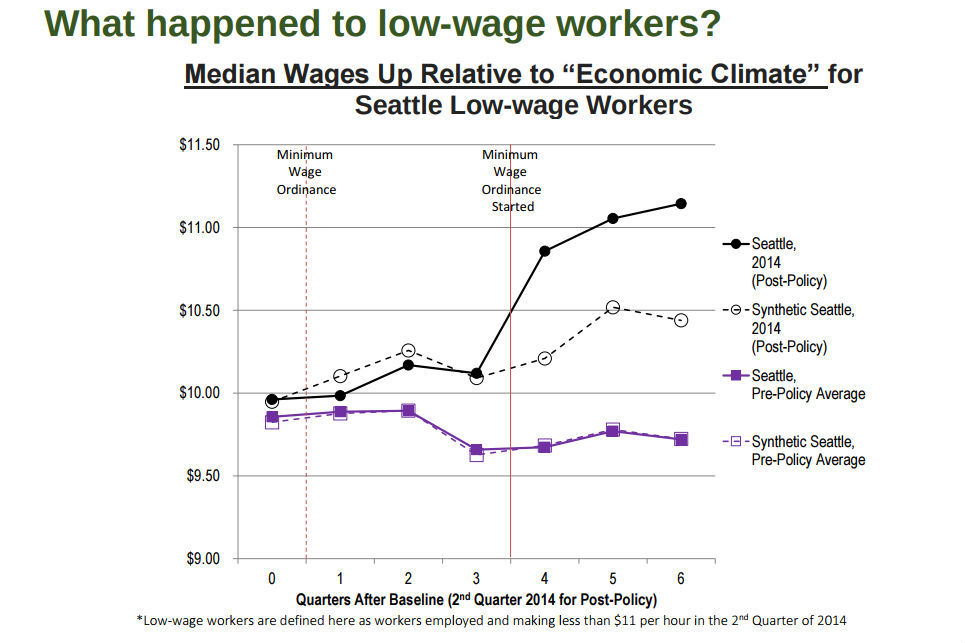The sky has not fallen. That’s the takeaway from a new report on the effects of Seattle’s newly heightened minimum wage.
“Wages have risen, businesses have withstood the increase, work opportunities have declined modestly, [and] average earnings have changed by no more than a few dollars a week,” said the UW minimum wage research team, led by Jacob Vigdor, in a presentation to city council this morning. This outcome stands in stark contrast against the rhetoric used when the new minimum wage was being debated in 2013 and ‘14, when opponents claimed it would “devastate” small businesses.
In fact, no such devastation has occurred. This has been clear for a while—Seattle’s minimum wage increase began April last year—and the new report from the UW research team further confirms it. “The City’s low-wage workers did relatively well after the minimum wage increased, but largely because of the strong regional economy,” the report says. “Seattle’s low wage workers would have experienced almost equally positive trends if the minimum wage had not increased.”
In case you forgot: Seattle leaders passed a $15 minimum wage in 2014 that started to go into effect in 2015, but it’s a gradual transition. At present, the Seattle minimum wage is between $10.50 and $13 per hour, depending on the size of the business and whether it pays for employee medical benefits. This chart traces the complex schedule for Seattle’s eventual transition into a $15 minimum wage, which adjusted for inflation will be a little more than $18 by the time all employers start paying the same minimum wage again in 2025.
To suss out the economic effects of the rising minimum wage—as opposed to other factors like regional trends and the weather—the UW researchers used data from Washington zip codes that showed similar trends to Seattle from 2005 to 2013 to guesstimate a hypothetical, “synthetic Seattle” that never instituted a minimum wage hike. The researchers then used this counterfactual as a benchmark against which to measure the economy of today’s actual Seattle, which has had a wage increase. Seen through this analysis, Seattle’s minimum wage hike appears to have had a small positive effect: workers are doing pretty well, but would being doing pretty well anyhow. Working Washington, a union-affiliated political group that supports a $15 minimum wage, responded to the report by criticizing its use of “an artificial version of Seattle” and pointed out that a year into the hike, Seattle’s economy is going gangbusters. (For what it’s worth, lead researcher Vigdor has argued in the past that the minimum wage itself should be replaced by expansion of the Earned Income Tax Credit, which is basically a diet version of a Universal Basic Income.)
It’s important to emphasize that this UW report is preliminary. The research team is slated to continue assessing the new minimum wage’s impact for another four years.








